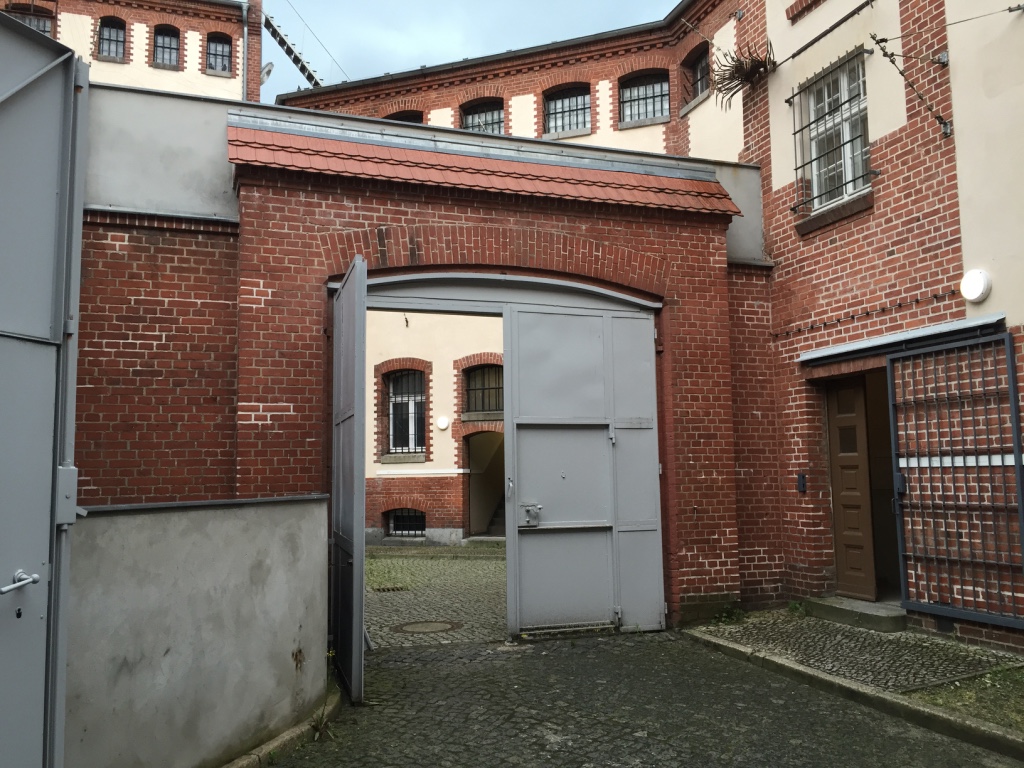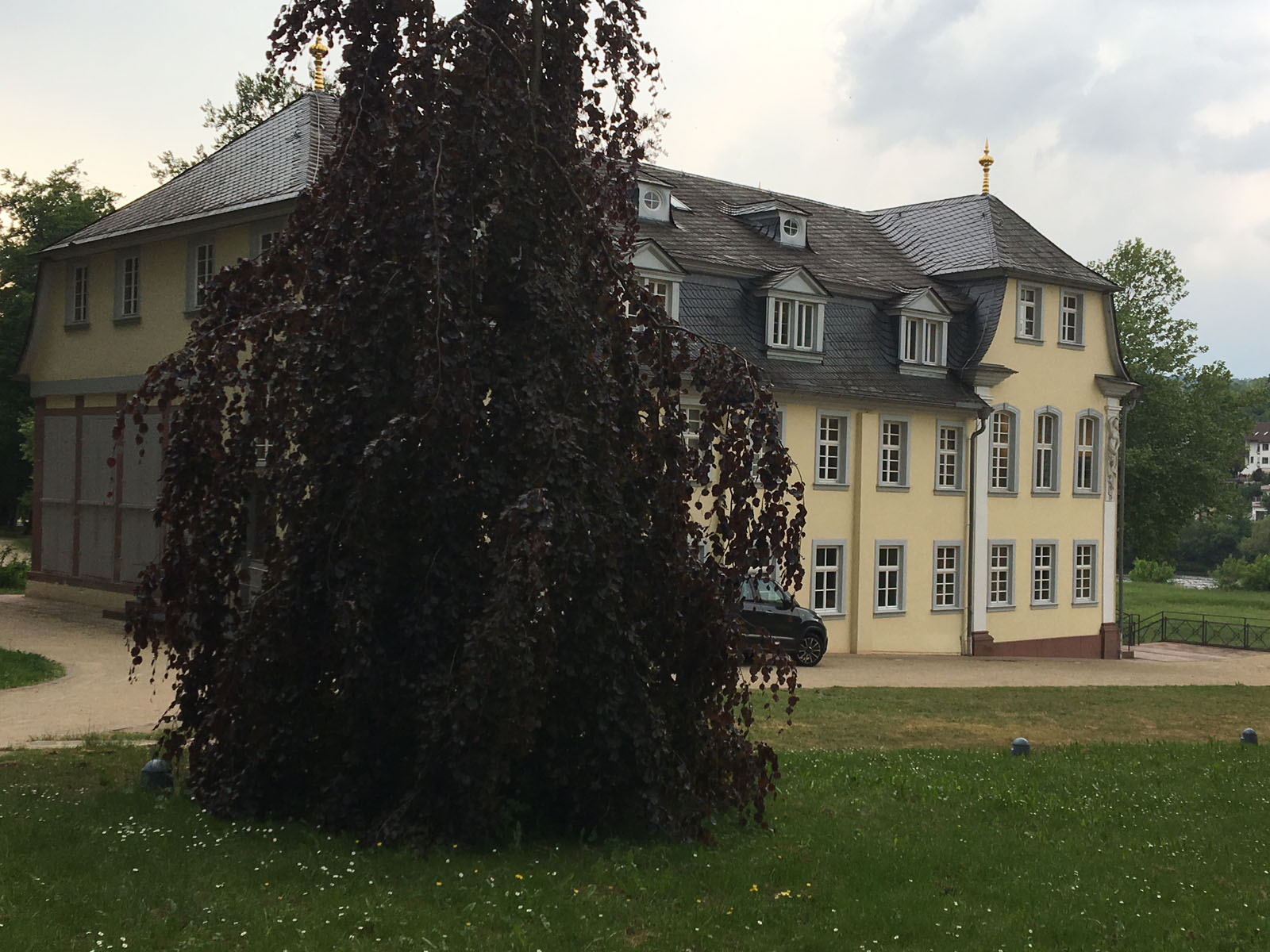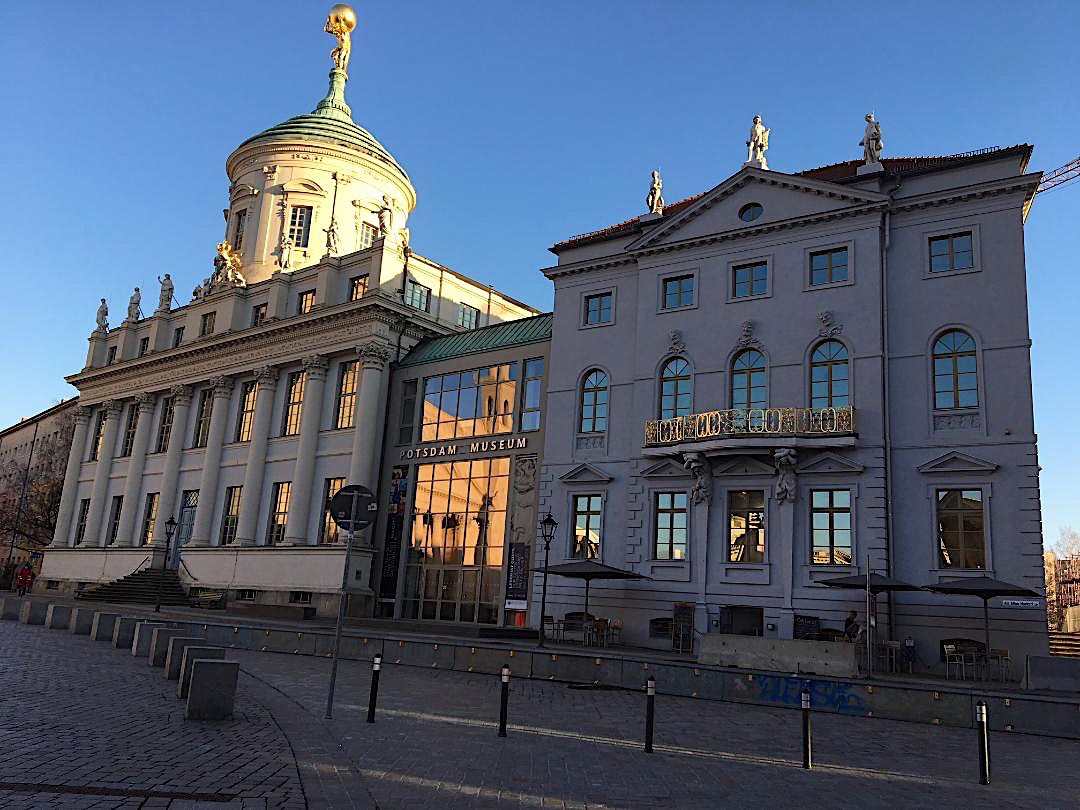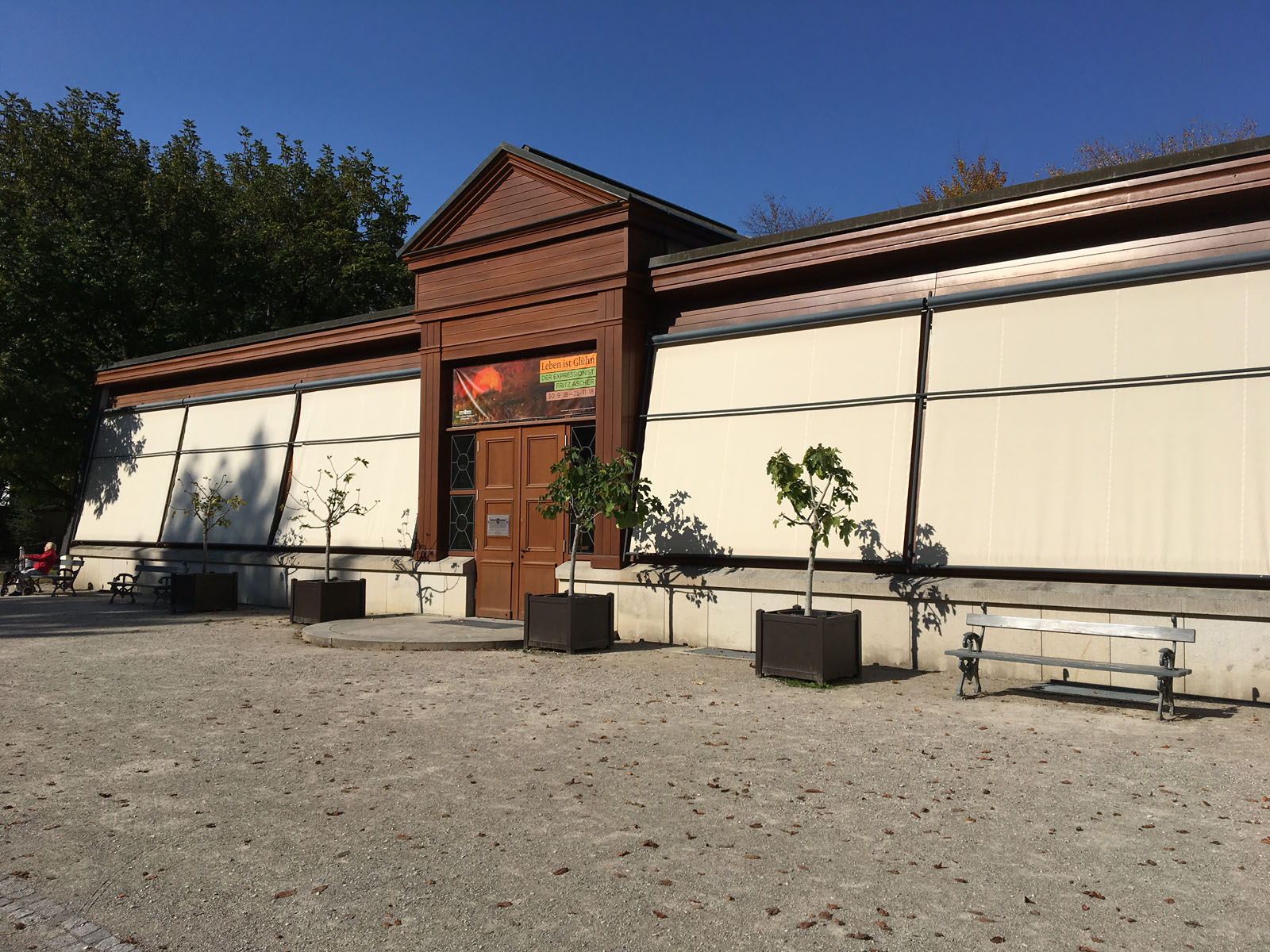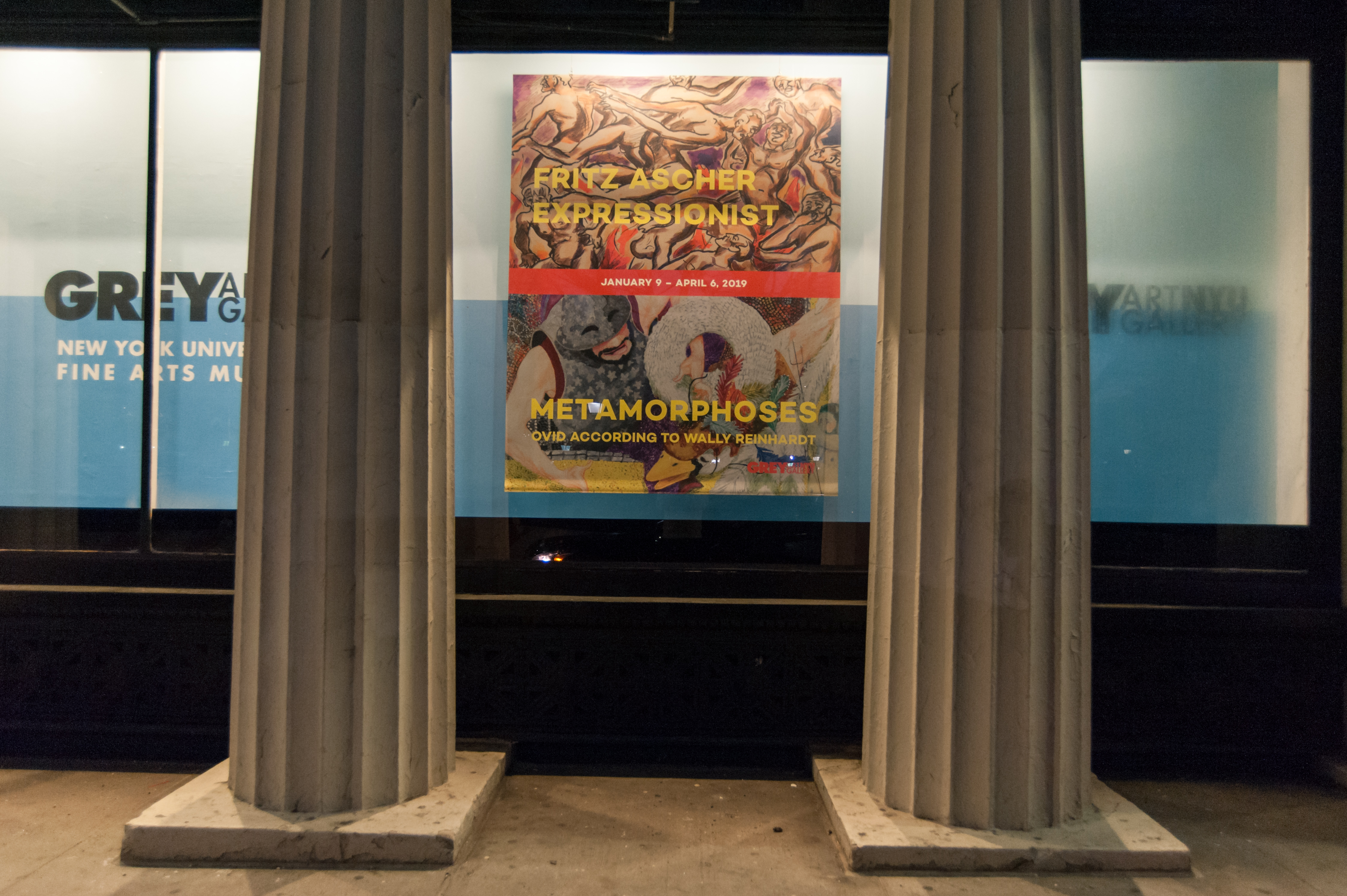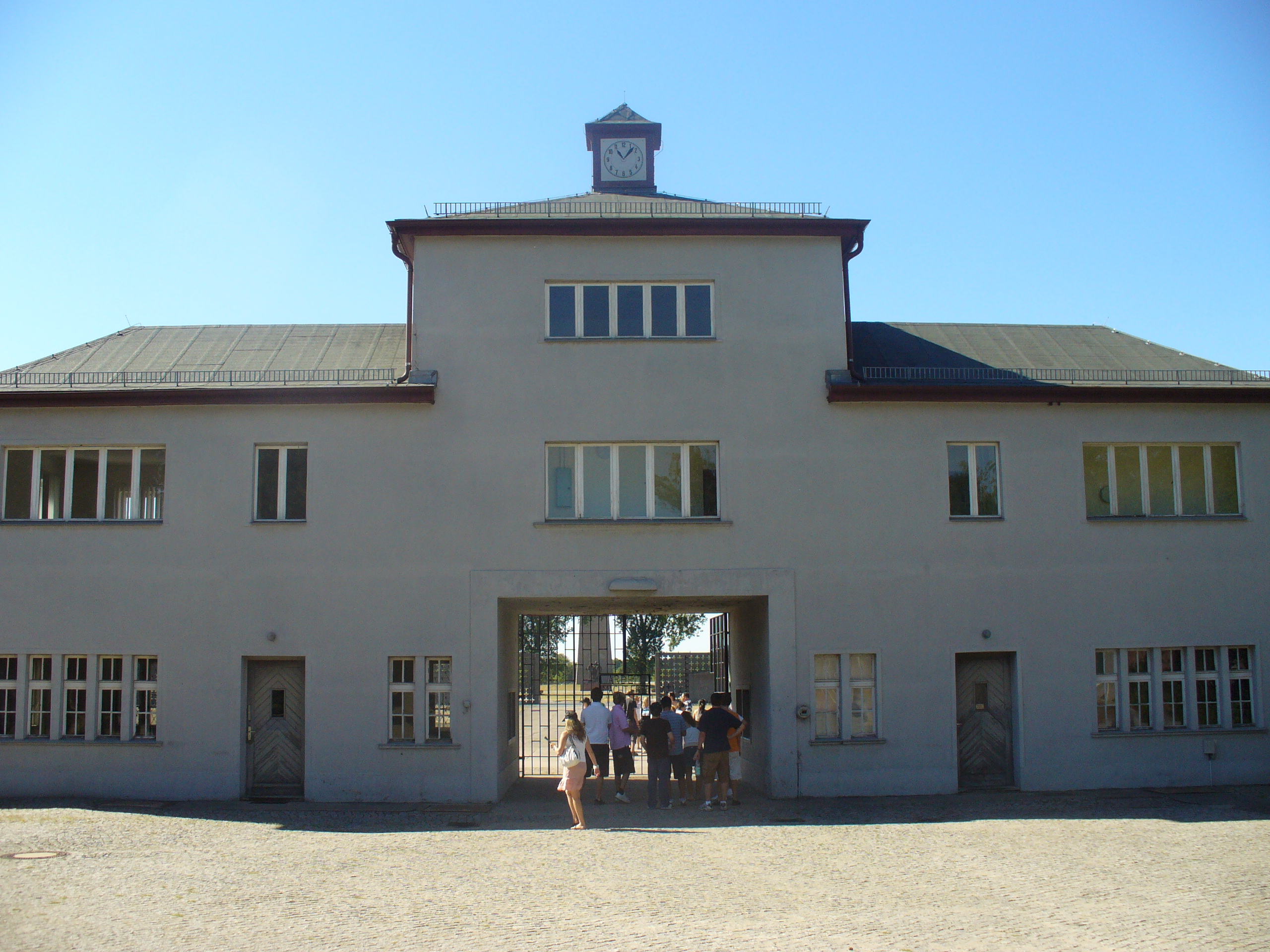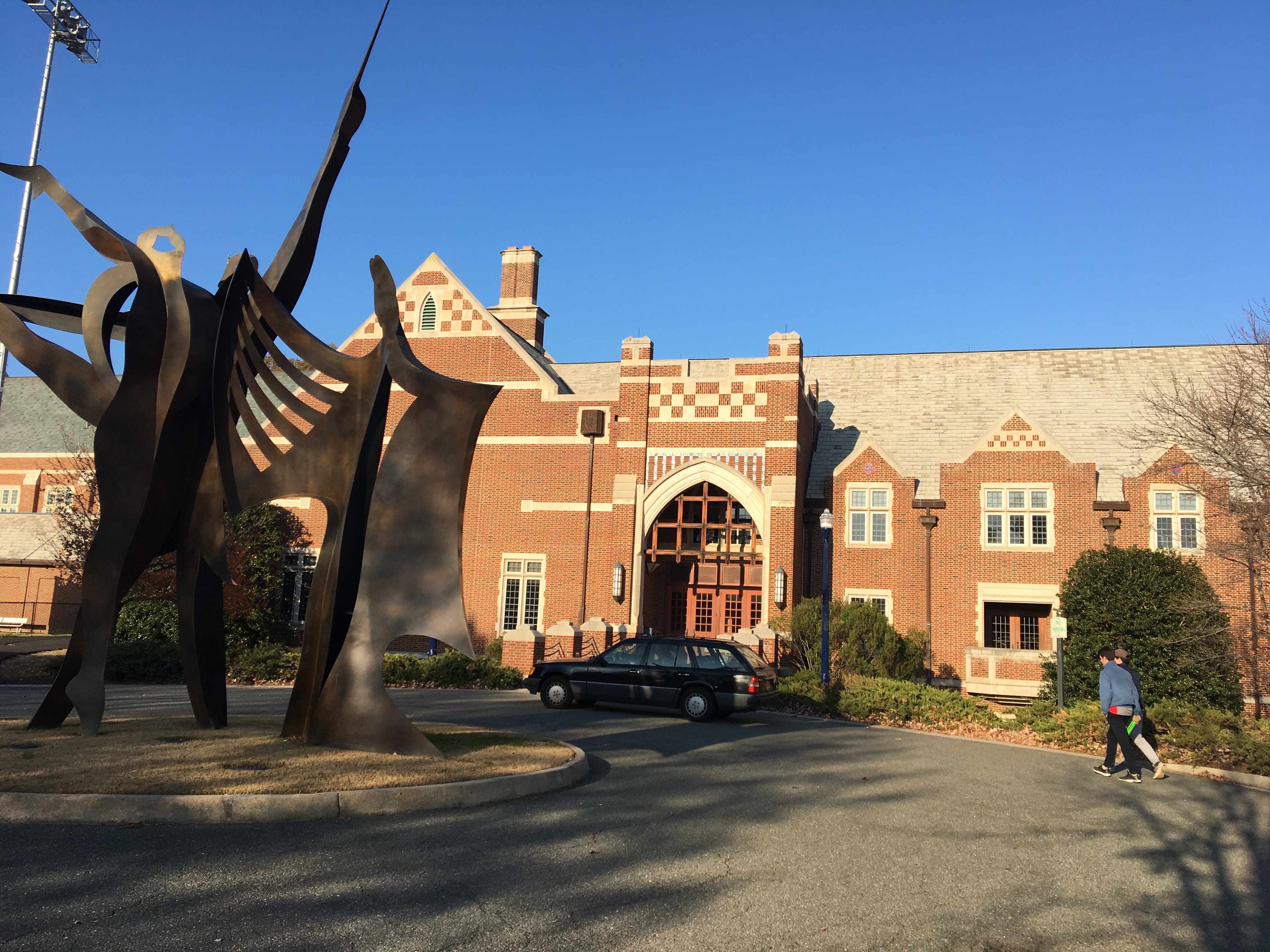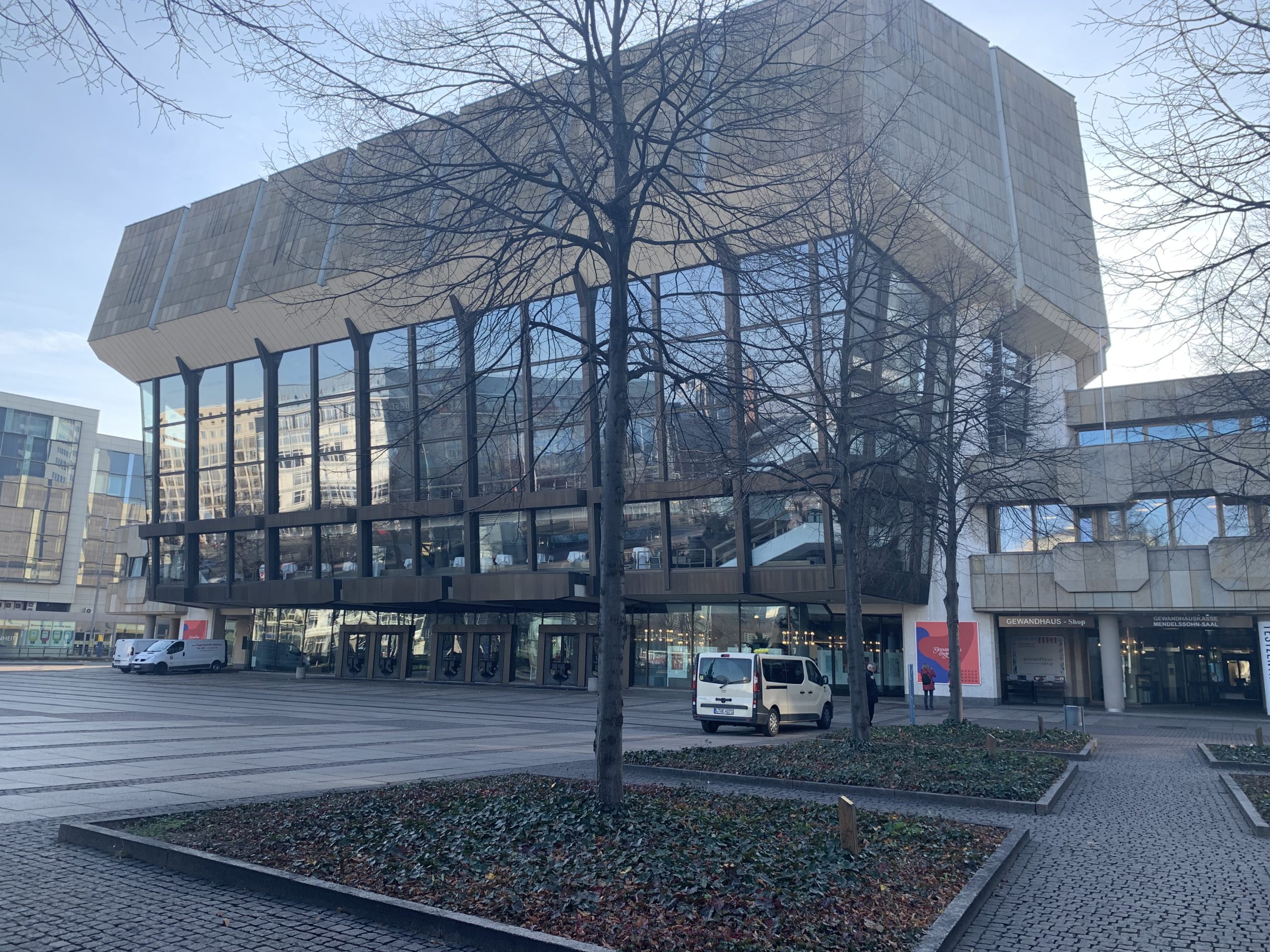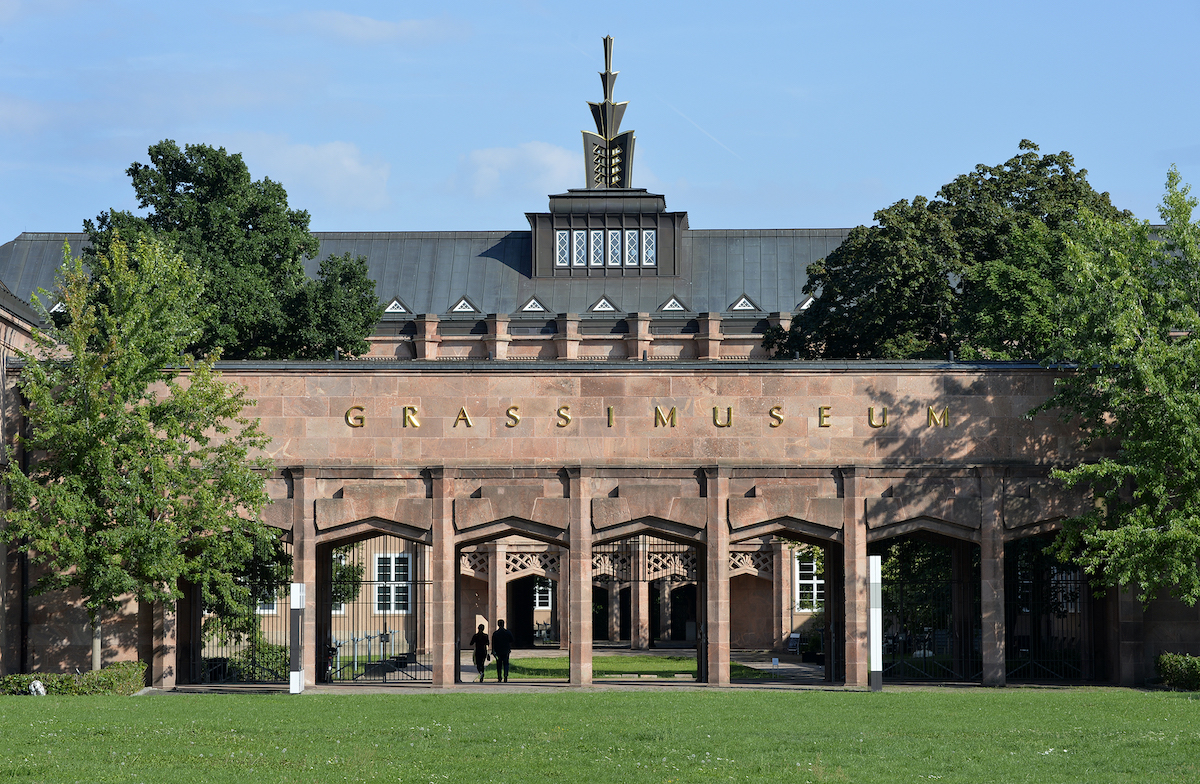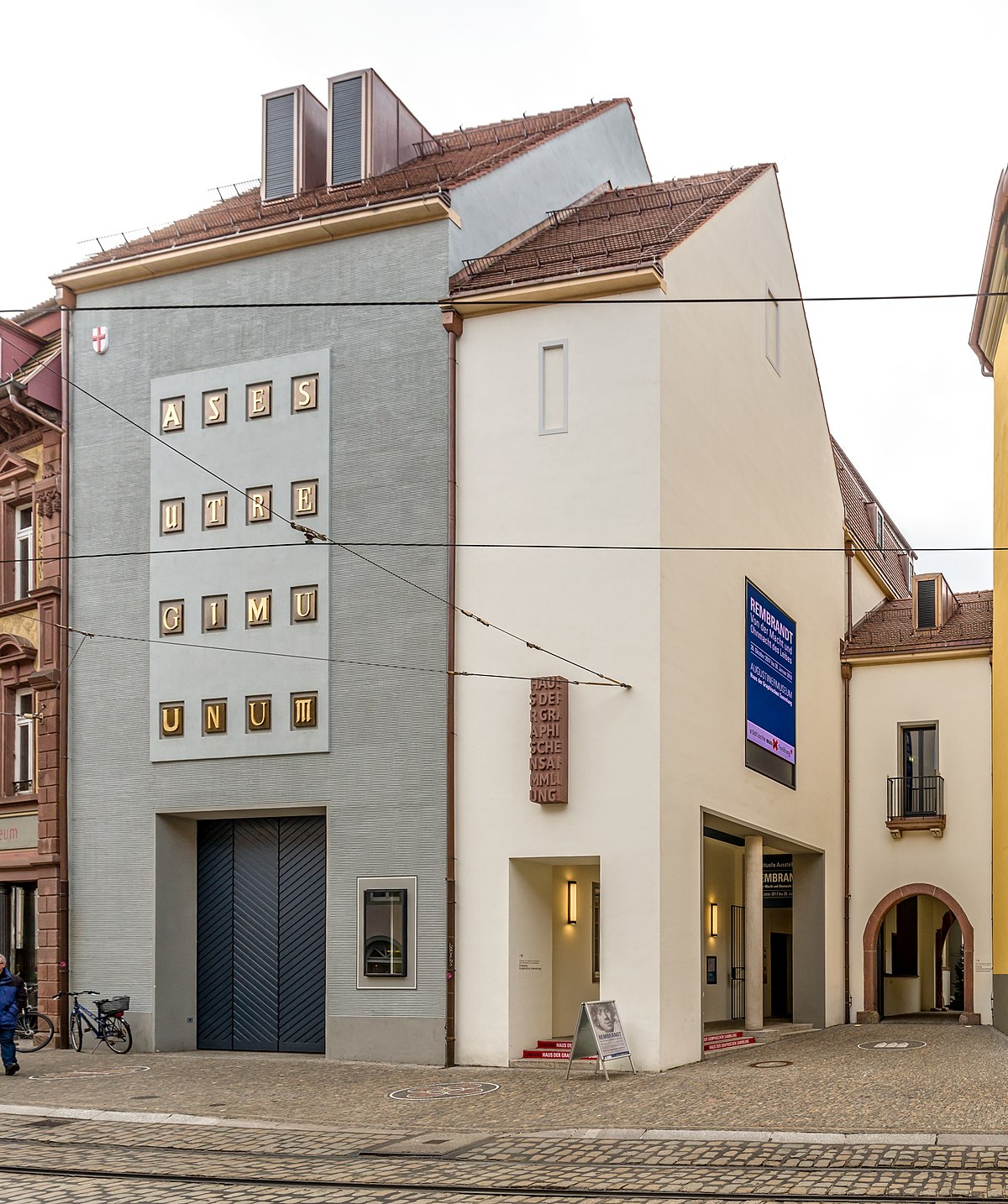Exhibitions
“Sechs Wochen sind fast wie lebenslänglich…” Das Potsdamer Polizeigefängnis Priesterstrasse / Bauhofstrasse
Stiftung Gedenkstätte Lindenstrasse, Potsdam (Germany)
Stiftung Gedenkstätte Lindenstrasse
Lindenstraße 54, Potsdam, Germany
Stiftung Gedenkstätte Lindenstrasse in Potsdam examines for the first time the history of the Potsdam police prison, the prison where Fritz Ascher spent almost 5 months in 1939. When the prison building in what is today Henning-von-Tresckow-Strasse was torn down in 2002, Potsdam historian Hannes Wittenberg was able to save two original artefacts, both today in the collection of the Potsdam Museum: an original prison door and a model of the prison building built by prisoners in the 1980s for fire protection exercises. Both objects are on display in the exhibition, together with original photographs and documents of the prison building. Fritz Ascher is one of the former prisoners, whose biography is being told. (website link) Questions being asked in [...]
“Leben ist Glühn” Der Expressionist Fritz Ascher
Museum Schlösschen im Hofgarten, Wertheim/Main (Germany)
Museum Schlösschen im Hofgarten
Würzburger Str. 30, Wertheim, Germany
The worldwide first Fritz Ascher Retrospective is on view at Museum Schlösschen im Hofgarten in Wertheim/Main until September 9, 2018. Here, a representative group of powerful paintings and drawings spans Ascher's whole oeuvre from first academic studies to monumental Expressionist figure compositions to late landscapes. Fritz Ascher's poems, written while hiding from Nazi persecution, can be discovered as "unpainted paintings" in relation to his artwork. In Wertheim, Ascher’s work can be seen in the context of his supporter Max Liebermann and his teachers Lovis Corinth, Ludwig Dettmann and Curt Agthe, thanks to the Schlösschen’s exquisite collection of Berlin Secession art. (website link) SWR Aktuell reported. (website link) Photos by Elmar Kellner and David Stern. A comprehensive German/English catalogue with [...]
“Umkämpfte Wege der Moderne. Wilhelm Schmid und die Novembergruppe”
Potsdam Museum – Forum für Kunst und Geschichte, Potsdam (Germany)
Potsdam Museum
Am Alten Markt 9, Potsdam, Germany
The exhibition "Umkämpfte Wege der Moderne. Wilhelm Schmid und die Novembergruppe" is dedicated to the controversial epoch of 1918-1933 and the radical changes during the following period. (link) Some of the artistic pioneers took the 1918/1919 revolution as an opportunity to unite as the "November Group", probably the most prominent political artistic group of the Weimar Republic. These self-proclaimed "revolutionaries of the mind" set out on new paths of artistic expression with their motives, colors and forms, rejecting the old imperial conventions in form and content. The members of the group not only caused a sensation with their revolutionary demand to participate in the new state in all art-related issues. For in the exhibitions - primarily at the Great Berlin [...]
“Leben ist Glühn” Der Expressionist Fritz Ascher
Kallmann-Museum, Ismaning (Germany)
Kallmann-Museum
Schloßstraße 3B, Ismaning, Germany
Last German venue! (link) At the Kallmann-Museum, a representative group of powerful paintings and drawings spans Ascher's whole oeuvre from first academic studies to monumental Expressionist figure compositions to late landscapes. Fritz Ascher's poems, written while hiding from Nazi persecution, can be discovered as "unpainted paintings" in relation to his artwork. With this exhibition, the Kallmann-Museum continues its examination of artists who became victims of the National Socialist art policy. Photos by Gerald Förtsch, Rasmus Kleine and Rachel Stern. A comprehensive German/English catalogue with essays by Jörn Barfod, Eckhart Gillen, Wiebke Hölzer, Ingrid Mössinger, Ori Z. Soltes and Rachel Stern accompanies the exhibition. (catalogue link) The Fritz Ascher retrospective was on view at the Felix-Nussbaum-Haus in Osnabrück (September 25, [...]
Fritz Ascher: Expressionist
Grey Art Gallery, New York University, New York (USA)
Grey Art Gallery
100 Washington Square E, New York, NY, United States
Fritz Ascher: Expressionist presents works by this German Jewish artist, who lived through the Weimar Republic, the Nazi regime, and into the postwar years. With the support of prominent Berlin painter Max Liebermann, Fritz Ascher (1893–1970) studied in Berlin before traveling to Oslo, where he met Edvard Munch. During a prolonged stay in Munich, he associated with the artists who contributed to Simplicissimus magazine, and back in Berlin, he fell in with the artists of Die Brücke. His early work is steeped in old myths, spirituality, and reflections on the human condition. From 1933 he was forbidden to produce, exhibit, or sell his art. Interned at the Sachsenhausen Concentration Camp in 1938, he survived the Nazi era mostly in [...]
Im Reich der Nummern. Wo die Männer keine Namen haben.
Gedenkstätte und Museum Sachsenhausen
Gedenkstätte und Museum Sachsenhausen
Straße der Nationen 22, Oranienburg, Brandenburg, Germany
“In the Country of Numbers. Where the Men have no Names” tells the story of the detention and exile of November pogrom prisoners in the Sachsenhausen concentration camp on the basis of twelve individual destinies. One of those individuals is Fritz Ascher. The interviews presented in the exhibition with children and grandchildren of the persecuted as well as family biographical photos and documents are new material first shown in Germany, which was researched in the USA, Great Britain and Israel. More than 6,300 Jewish men were brought to the Sachsenhausen concentration camp after the November pogroms in 1938. After a few weeks, the vast majority was set free, with the condition to emigrate immediately from Germany. Many have therefore [...]
“Fritz Ascher, Expressionist”
Joel and Lila Harnett Museum of Art, University of Richmond, Richmond, VA (USA)
Joel and Lila Harnett Museum of Art, University of Richmond, Richmond, Virginia
410 Westhampton Way, Richmond, VA, United States
"Fritz Ascher: Expressionist" presents works by this German Jewish artist, who lived through the Weimar Republic, the Nazi regime, and into the postwar years. With the support of prominent Berlin painter Max Liebermann, Fritz Ascher (1893–1970) studied in Berlin before traveling to Oslo, where he met Edvard Munch. During a prolonged stay in Munich, he associated with the artists who contributed to Simplicissimus magazine, and back in Berlin, he fell in with the artists of Die Brücke. His early work is steeped in old myths, spirituality, and reflections on the human condition. From 1933 he was forbidden to produce, exhibit, or sell his art. Interned at the Sachsenhausen Concentration Camp in 1938, he survived the Nazi era mostly in [...]
“Vorhang auf für Emmy Rubensohn! Musikmäzenin aus Leipzig”
Gewandhaus zu Leipzig, Mendelssohn Foyer, Leipzig, Germany
“Curtain Up for Emmy Rubensohn! Music Patron from Leipzig” Music patron, concert manager, salonière and letter writer - this is roughly how you could describe Emmy Rubensohn's profile. An exhibition that can be seen between November 10 and December 19, 2021 in the Mendelssohn Foyer of the Gewandhaus Leipzig - at a location that Emmy Rubensohn is connected with in a special way. On the one hand, she was born in Leipzig in 1884 as the daughter of the Jewish entrepreneurial family Frank, who owned a textile factory there. On the other hand, even as a young girl she was a passionate concert-goer who was particularly attracted to the Gewandhaus concerts. In any case, she was busy collecting autographs [...]
Emmy Rubensohn! Netzwerkerin und Musikförderin – von Leipzig bis New York
June 25 – January 14, 2024
Museen im GRASSI, Leipzig, Germany
Museen im GRASSI
Johannisplatz 5-1, Leipzig, Germany
Emmy Rubensohn! Networker and Music Patron - from Leipzig to New York Emmy Rubensohn (1884-1961) was a networker, music patron, concert manager and author of letters. Born in Leipzig in 1884 as the daughter of the Jewish entrepreneurial family Frank, she attended Gewandhaus concerts at an early age and collected autographs from prominent artists of her time. After marrying Ernst Rubensohn in 1907, she moved to Kassel, where the couple turned their house into a cultural meeting place, where composers and performers such as Wilhelm Furtwängler, Walter Braunfels or Ernst Krenek, or visual artists such as the painter Oskar Kokoschka or the sculptor Benno Elkan guested. Thanks to a "residency grant", Krenek was able to complete his opera "Jonny [...]
LOVE AND BETRAYAL – The Expressionist Fritz Ascher from New York Private Collections
November 8, 2024 – March 2, 2025
Haus der Graphischen Sammlung, Freiburg, Germany
Haus der Graphischen Sammlung
Salzstraße 34, Freiburg im Breisgau, Germany
The late Expressionist artist Fritz Ascher (1893-1970) survived two world wars and persecution by the National Socialist regime. A close observer of the horrors of World War I and revolutionary unrest, he turned to Christian spiritual themes, which he radically reinterpreted. In intimate drawings, he dealt with the theme of love and betrayal from 1916 onward, both in his exploration of the crucifixion theme and with the figure of Bajazzo in the tragicomic opera "I Pagliacci." Ascher's strong and unique artistic voice is evident not only in his artwork, but also in his poems. These were written when he was no longer allowed to work under National Socialism because of his Jewish roots and as a representative of modernism, [...]


